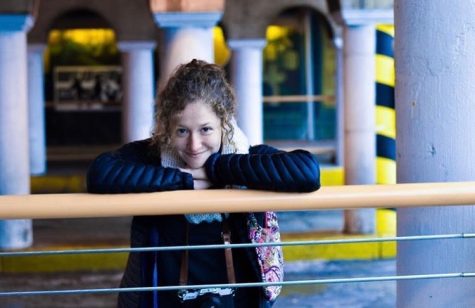Building Bridges Beyond the Bubble in Dilley, Texas
Since 2001, ATLAS Week has focused on promoting discussions on current global challenges. With these discussions come informed action, through which the students are encouraged to critically think about the current issues and become involved advocates for social change.
The 2018 ATLAS Week theme was “From Broken Walls, We Build Bridges: Out of Conflict Rises Community,” which accentuated the student, faculty and staff connections beyond the “SLU bubble.”
Spanning from April 6 through April 14, ATLAS Week featured the keynote address from Fred and Milton Ochieng’, both doctors and co-founders of the Lwala Community Alliance, a multifaceted nonprofit organization in Kenya that provides clinical care, public health outreach and educational and economic tools to benefit the country.
Beyond providing healthcare to Kenya, the goal of the Ochieng’ brothers was to improve the quality of education through mentoring and allocation of school supplies to students. Like Lwala, each ATLAS Week event contained a global outreach component. But the presentations also offered a way to make a global impact without leaving the states, whether it was through voting, becoming informed about one’s own biases toward a particular ethnic group or discussing the refugee crisis and how students can domestically make an impact.
Of those who presented, sophomore Marissa Orneal discussed her internship with CARA, a collection of organizations that created a family detention project to ensure that detained children and their mothers receive competent representation after crossing the border for safety. It also aims to end the practice of family detention entirely. The formation of the CARA Family Detention Project is in response to the Dilley Pro Bono Project, which opened the largest immigration family detention center, the South Texas Family Residential Center, in Dilley, Texas, in 2014.
A prospective immigration attorney, Orneal recounted her week-long experience in Dilley through her ATLAS Week presentation called “This Bridge Called Our Backs: Walking With The Women and Children in the South Texas Family Residential Center.” She explained her time in Dilley as “life changing” as she listened to immigrants who were seeking asylum, and she provided legal support for families detained at the center. Because Orneal speaks Spanish fluently, she was placed in a room by herself with mothers and their children to discuss cases to prevent the families from being deported.
“The United States does not protect [immigrants] from war or poverty or violence,” Orneal said. “You have to prove to the United States government that you have suffered some personal persecution or fear some personal persecution on these five protected grounds – race, religion, nationality, political opinion and membership in a particular social group. You also have to prove that you did not receive any protection from the police or government, which is very difficult.”
Regarding the latter point, Orneal asked the women how far the nearest police station was from their homes in their native countries and whether they went to the police before and for what reason. Women are required to prove their answers to the asylum officer, and volunteers like Orneal help to formulate the women’s answers, so they have a greater chance of receiving asylum in the United States.
Orneal’s talk funneled a crowded room of students and faculty members. Although not pre-law, junior Allison Jasper attended and expressed her interest in the topic because she is a Spanish major and had never heard about CARA before.
“I thought that it was awesome that a SLU student who went [to the STFRC] presented on this topic and had a first person account,” Jasper said. “I had no idea that the US had these family detention centers that are like jails, even though families are trying to find better lives here. This is never publicized.”
While Orneal’s event was the only ATLAS Week event that Jasper attended, she stressed the importance of attending at least one or two of these talks to learn how students like herself can get involved and potentially make an impact beyond St. Louis.
Your donation will support the student journalists of Saint Louis University.

Staunch entered SLU as a Biomedical Engineering major on a Pre-med track, with the intention of continuing her studies in medical school. After a year and a half at SLU, she realized she missed the balance of the arts with sciences as she was previously an editor in her high school yearbook committee.
"Working for UNews, whether it was as Associate News Editor, Managing Editor, or Editor-in-Chief, has taught me the value of working on tight deadlines and how to adequately adapt to certain unexpected situations. The field of Journalism is incredibly fast paced - but that is why I love it so much," Staunch said. "There is always something new occurring, and you would not be able to effectively complete your job unless you had the support of your other editors and staff."
Though paradoxical in nature, she switched her major to Communication. She wants to incorporate both her analytical and creative sides to report on medical topics. Her dream job: to write for Discover Magazine.
When Staunch is not in the newsroom, she is captaining the women’s Ultimate Frisbee team at SLU. She began playing her freshman year and enjoys it as an outlet.




